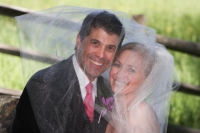All your ex-es may live in Texas as the country song says but do you really want your hard-earned money to follow? And you may be a generous sort but would you rather have your wealth pass on to your family or Uncle Sam? More examples of smart people doing dumb things when it comes to estate and legacy planning.
What do you think of when someone says “estate plan?”
If you think that it’s only for “old” people or those with lots of money, then think again. If you have someone or something you care about, then you need a plan regardless of age or the amount of money involved.
Honey, I forgot the kids …
Think of Ana Nicole Smith and her infant daughter. Think about the King of Pop, Michael Jackson. Take away the money and there is still the drama about custody and guardianship for the children that could have been avoided with a proper plan. And this sort of thing happens daily with families of much lesser means but the same need for care of a loved one.
There is an old saying: Those who fail to plan, plan to fail.
What Estate Planning Really Means to You and Your Family
The easiest definition of estate planning is controlling how and who gets what you have when you pass away or become disabled.
As estate attorneys in the Esperti Petersen Model define it:
Estate planning provides the ability to:
- Give what I have
- To whom I want
- When I want
- The way I want.
Legacy planning takes it a step further and provides for the transfer of wisdom, memories and experiences along with the material wealth.
Most estate attorneys and financial advisers start from the point of view about the money and taxes. Most clients are categorized into three groups:
- Individuals
- Married with assets above the federal estate tax exemption (now through December 31, 2010 at $3.5M)
- Married with assets below the federal estate tax exemption.
But a more client-focused and value-oriented planning approach to estate and financial planning begins with conversations about what is important to the client. Only then will a client understand the context of a plan as well as why there may be need for changes to keep it current and aligned with the goals expressed by the client.
Too often, I hear that “I’m all set” because “I took care of it” or drafted a will when their college senior was about 2 years old.
In an increasingly complex world with changing state and federal tax codes, fluctuating asset values and a litigious culture, it is even more important to create a plan and routinely review it. (If you were traveling on a highway cross-country, you wouldn’t simply turn on cruise control and take a nap, would you? I hope not. Even if you have good insurance, are you sure who’s going to get the proceeds?)
17 Major Mistakes
There are more than 17 significant common mistakes that people make regarding estate planning. These include failing to coordinate the financial plan, improperly structuring life insurance policies, choosing the wrong executor, improperly gifting assets, failure to properly create and fund trusts and the list goes on.
We could talk about Qualified Personal Residence Trusts, Installment Sales to Defective Grantor Trusts, Family Limited Partnerships and Credit Shelter Trusts.
But that’s all legalese. It’s sort of like asking someone for the time and they tell you how to build a watch. That doesn’t matter to you as much as knowing the time. There are lots of tools in the tool kit of a qualified estate and financial planner. You probably don’t care about which tool to use as long as the right tool recommended by a professional does the job.
What happens when you deal with real people? (1)
Jack and Jill and a Boy Named Dale
Jack recently turned 32. He and Jill have been married for nearly three years. Dale was born nearly 13 months ago. When not at work as UPS delivery driver, he enjoyed getting his heart pumping by cycling with a local riding club. During a weekend ride as the group of cyclists were descending a hill quickly, a car being driven by a dentist who was late for a client appointment overtook the riders thinking that he had enough time and distance to safely clear the group. He abruptly turned right onto the street where his office is located.
Unfortunately, the other car coming from the opposite direction to the stop sign on the street the dentist was driving onto was being driven by a young driver who was distracted by her incoming text message which lead her to cross over her lane. When the dentist’s car hit her at the corner, it caused the cyclists to swerve in confusion.
In the resulting melee, Jack went down hard breaking his collarbone and vertebrae in his lower back leaving him without the ability to walk more than a short distance and unable to lift more than a couple of pounds.
Richard and Anne and the Day that Changed Everything
Richard and Anne lived in an old colonial overlooking the river in a quaint New England town. Richard had a successful position with Cantor Fitzgerald, one of the world’s premier bond trading shops located in the World Trade Center of New York City. While Anne managed the home front and their two rambunctious boys age 7 and 4, Richard would commute by plane to meet clients or for meetings at the corporate offices in New York.
By all accounts, they had an ideal life. They had family and close ties to the community. Their weekends were filled with home improvement projects on their home or one of the three investment properties they rented out.
Their world was turned upside down a little after 9 AM on September 11, 2001 when Richard’s plane was flown into one of the World Trade Center towers.
Paul and His Long Lost Love
Paul had been married to Bertie for more than 5 years when Bertie asked for a divorce in 1967 fed up by Paul’s late night carousing. After a couple of years of the single life, Paul found Carol, a long lost love from high school days.
Flirtations became something more and Paul and Carol got married and lived a nice life together.
After more than 30 years of working at his job with the state, he decided to retire. But before he turned in his papers, Paul died suddenly from a heart attack.
Although the loss of Paul, her long time love, was devastating, the news that followed was even worse. It seems that Paul had never quite gotten around to fixing the beneficiary listed on his pension so the estate of his ex-wife Bertie, long since dead, would be going to Bertie’s younger, sole-surviving sister from Texas leaving Carol without an income source for her retirement.
Sal and Pauline
The romance that would result in seven children, thirteen grandchildren and 4 great-grandchildren began when Sal and Pauline met at a USO dance at Fort Devens in 1943. Before shipping overseas with his Army unit, they got married. More than sixty years later, they enjoyed the retirement years shuttling between family visits and weekly dances at the local senior center.
Then Sal noticed that Pauline started forgetting things. With that many kids and grand kids, it wasn’t hard to imagine forgetting all their birthdays but soon she started forgetting to eat and dress.
Eventually, her doctor gave Sal the hard news that Pauline had Alzheimer’s and despite his best efforts she would need professional care.
After Sal and his sons brought Pauline to the nursing home, the reality hit home. Despite their frugal lifestyle, Sal and Pauline had a sizeable nest egg and home. After the first 120 days in the nursing home, Sal would need to start writing checks in the amount of $7,500 each month for Pauline’s care. A lifetime of hard work and saving was being threatened. What could he do? Was there any other way?
Lots of Things Can Happen
Divorce. Disability. Law Suits. Remarriage. Car Accidents. Business Partners.
If you think that these things can’t happen to you, think again. Seek out the help of a good planning team that can coordinate these pieces. While no one can predict what may happen, putting together a proper plan will help you and those you love with picking up the pieces after a personal loss or tragedy.
Value-Oriented Estate Plan Foundation
(1) Note: All names have been changed and situations presented are a compilation of various facts.
















